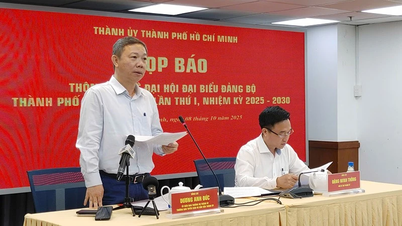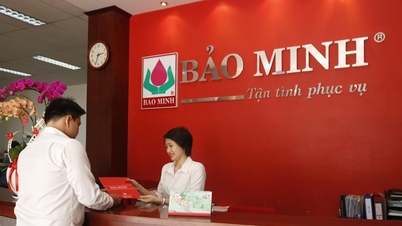The legalization of the above principle is expected to create a strong shift in public sector governance in three aspects; first, shifting from “process control” to “result control”. Instead of evaluation based mainly on compliance with detailed processes and procedures as in the past, the principle of empowering with accountability and encouraging innovation among civil servants will help shift the focus to measuring the results and quality of public services, while giving greater autonomy to units in organizing the implementation of tasks. This is a concrete manifestation of the “results-based governance” mindset that many advanced countries have successfully applied.
Second, promoting autonomy coupled with responsibility; when empowered with financial, personnel and professional powers, public service units and their leaders must be fully and publicly accountable to the management agency and the people. This mechanism not only strengthens transparency, but is also an effective tool for controlling power, instead of rigid control by administrative orders.
Third, unlocking the potential for innovation; institutionalizing the principle of encouraging innovation among civil servants sends a clear message: innovation is no longer an option, but a mandatory requirement of the modern civil service. More importantly, this will pave the way for building a legal protection mechanism for civil servants who dare to innovate.
Of course, to effectively implement the principle of delegation of authority linked to accountability and encouraging innovation among officials, there needs to be synchronous preparation in terms of institutions, enforcement mechanisms and public service culture. First of all, it is necessary to clearly define the scope and limits of the authority delegated. Decentralization and delegation of authority must go hand in hand with a mechanism to control power, ensuring clear boundaries of authority, avoiding the situation of "passing the buck" or "dodging responsibility".
Along with that is the completion of the mechanism for reporting and evaluating work results; it is necessary to establish sets of quantitative and multi-dimensional assessment criteria - based on the results of task implementation and the level of satisfaction of the people. There are modern reporting tools, applying technology to increase transparency and objectivity. Reporting must become a culture of action for all officials and all public service units.
And in particular, as proposed by National Assembly delegate Thach Phuoc Binh ( Vinh Long ), it is necessary to legalize the mechanism of exemption and reduction of responsibility for civil servants who dare to think and act for the common good but have not had successful results, and to link this provision with Article 34 on excluding responsibility to ensure the consistency of the draft Law on Civil Servants (amended).
On that basis, the Government needs to issue guiding Decrees, design mechanisms for exemption and reduction of responsibility that are detailed enough to avoid exploitation, but still strong enough to encourage innovation; clearly distinguish between intentional violations and lack of responsibility (which must be strictly handled) and objective risks when implementing innovation (which need to be protected and encouraged); maintain a flexible, data-based, transparent and public monitoring mechanism, ensuring control without hindering initiatives; this will be a "shield" to help relieve the fear of making mistakes and being held responsible, which is a major "bottleneck" in current public service activities.
It is also important to note that moving from “following the process” to “taking responsibility for results” is a revolution in management thinking. This requires leaders to be truly pioneers, dare to take responsibility, and at the same time create an environment for employees to promote initiatives and experiment with new things within the allowed scope.
On the other hand, innovation cannot be encouraged without financial resources, facilities, technology and human resources. Especially in areas such as education , health care, and science, there needs to be a sustainable investment policy so that officials have the conditions to implement initiatives and solutions that bring practical value.
Thus, legalizing the principle of empowering with accountability and encouraging innovation among civil servants is not only a legal provision, but also a declaration of a new public administration model - where authority, responsibility and innovation are placed on the same foundation. However, for this principle to be truly effective, along with the draft Law submitted to the National Assembly, the Government and relevant agencies need to proactively develop and soon issue detailed decrees and circulars. At that time, the civil servants will truly become companions of the State in the journey of development creation, instead of just being the ones to execute administrative orders.
Source: https://daibieunhandan.vn/lay-ket-qua-hieu-qua-va-doi-moi-sang-tao-lam-trung-tam-10389489.html





![[Photo] Closing of the 13th Conference of the 13th Party Central Committee](https://vphoto.vietnam.vn/thumb/1200x675/vietnam/resource/IMAGE/2025/10/08/1759893763535_ndo_br_a3-bnd-2504-jpg.webp)

































































































Comment (0)